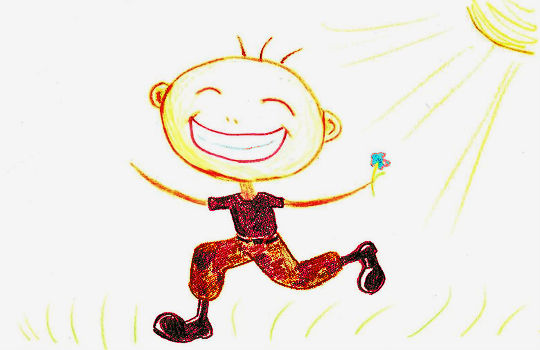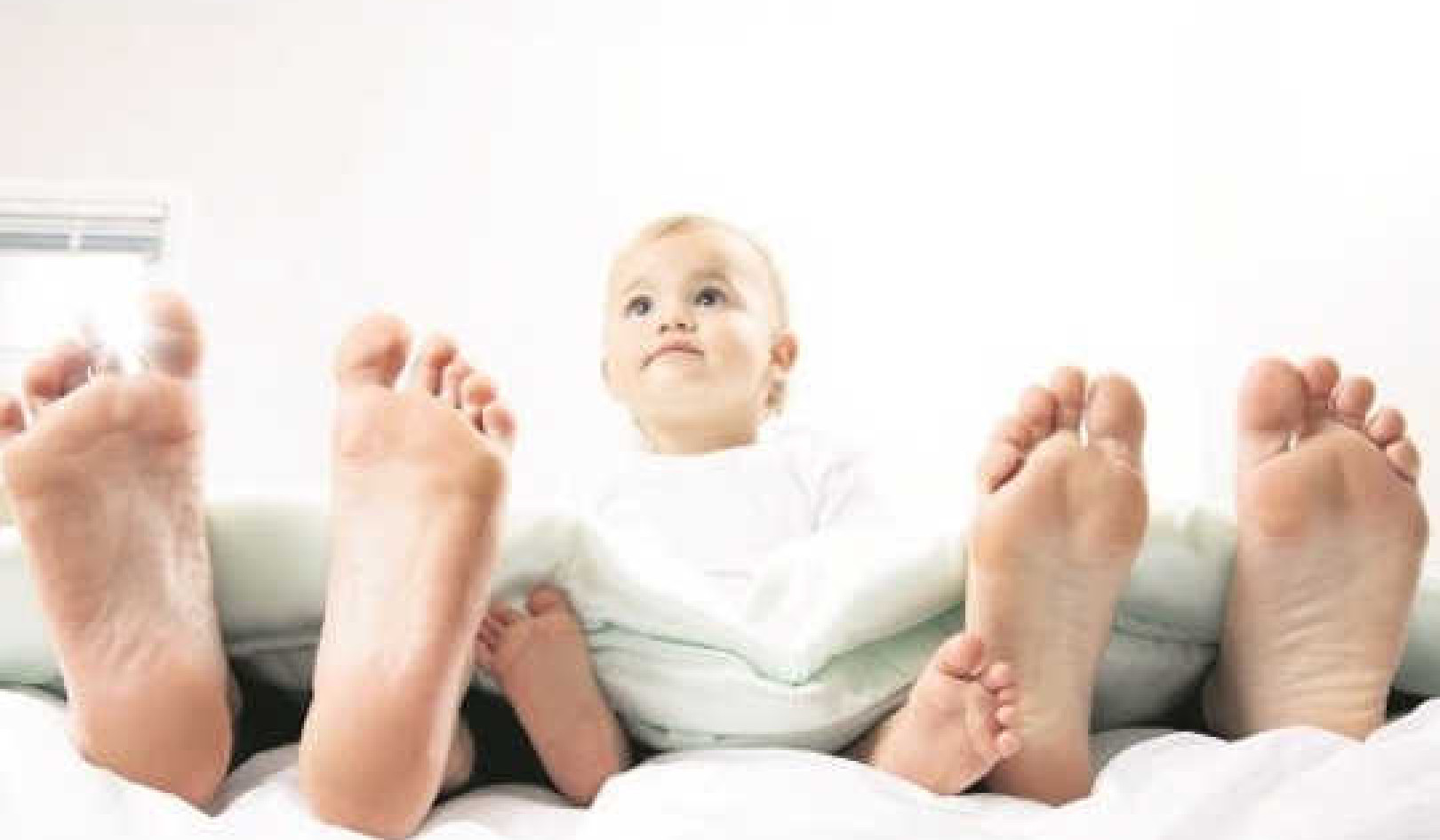
(U.S. Air Force illustration by Airman 1st Class Oleksandra G. Manko)
Editor's Note: While this article is speaking of children, all its information and insights can be applied to ourselves and other adults.
"The trick is in what one emphasizes. We either make ourselves miserable, or we make ourselves happy. The amount of work is the same." -- Carlos Castaneda
How do you help your child achieve a positive sense of worth? By teaching him how to appreciate himself.
Do this by:
1. First, no matter how your child is behaving, find something within him to value and be grateful for.
2. Then, point out to your child the specific quality or action you are appreciating about him.
This is especially important when your child is having a tough time and might naturally put himself down.
For example, he is laboring over his multiplication tables. Tongue firmly wedged in the corner of his mouth, he applies himself with all his might. After ten minutes, he gives up, laying his head down on the kitchen table, staring at nothing while he picks at the loose Formica at the edge of the table.
Resist the urge to say, "Stop that! Sit up straight and do your homework!"
Instead, sit by him and say, "What's not working here?"
He grumbles, "I don't know. I can't do this. It's too hard."
You nod, buying time.
What can you appreciate in this situation? You think back to a time when your child was challenged, but persevered.
You say, "Remember that science project with the worms you did last year?"
"Yeah," your child mutters.
"Remember how hard it was for you," you continue, "but how you stuck with it? And finally you figured it out and got a big fat gold star for it?"
`"Yeah," your child says, a little less miserably.
"You're really good at that," you say.
'What?" he asks.
"Sticking it out," you reply.
"Yeah?" your son asks, shyly pleased.
"Yeah," you reply. "You are a mighty sticker-outer. You stick with things and, gosh darn it, you see them through. That's a really good thing to be."
"Huh;" your son replies, lifting his head up and picking up his pencil.
"So, let's you and I work on this multiplication thing together," you say. "And you be the really great sticker-outer you are, and you'll end up with a gold star again."
"Yeah," he says, "OK." And you're off and running.
Keep reminding your child what a great "sticker-outer" he is whenever he flags, and through the power of your appreciation, he discovers something to appreciate about himself. Over time, he'll internalize the qualities and attributes you point out to him, appreciating them fully himself, thereby being able to successfully and joyously cope with the challenges of life.
Children Must Appreciate Others
With a sense of his own value and of being appreciated, a child finds it easier to appreciate others' value. Appreciation for other people -- valuing human life itself -- keeps a child from harming others.
It's easy to show your child how to value and be grateful for the others in his life. The best place to start is at home, with the family. Every day brings many opportunities.
For example, your child comes running to you, crying that his brother took his toy. Your instinctive reaction might be, "I'm sorry, sweetie, but it's no big deal. Go play with another toy." Or you may reprimand your other son for taking the toy.
Working with appreciation, you might respond differently. To the child who came crying to you, you might say, "I'm sorry, sweetie; your brother can be a pain sometimes, but I know you both like playing together. I've seen you work things out with him before. How about trying that now?" To the son who took the toy, you might say, "I know you appreciate playing with your brother, even though it's not looking that way right now. Can you figure out a way to share?"
Making Appreciation A Part Of Your Regular Routine
Get your children in the habit of appreciating others by making appreciation a part of your regular routine. For example, put a sheet up on the refrigerator entitled: "Things to appreciate about us!" Divide the sheet into columns, and print each family member's name at the top of a column. Each person writes down something they appreciate about each other person, and initials their entry. The object is not to receive the most appreciation, but to give the most appreciation. At the end of the week, whoever wrote the most appreciative comments gets a special treat.
When you jot down something to appreciate, tie it to a personality trait, which provides the recipient with the bonus of seeing how others enjoy his or her qualities and talents. Here's an example:
I appreciate my child's
-- cooperativeness (shared his Nintendo)
-- good nature (pitched in without being asked)
-- sense of humor (made me laugh and uplifted me)
-- honesty (gave my dropped change to me)
-- self-discipline (homework handed in on time)
Being A Living Example Of Appreciation
Children are born imitators: they model their behavior on the adults around them. They will imitate anything, including your appreciation of others -- or lack of it.
Make a habit of appreciating the sales clerk, UPS driver, mail carrier, homeroom teacher, and other people your children watch you interact with. Be specific as you express your gratitude for the clerk's helpful suggestions, or the mail carrier's punctuality, or the homeroom teacher's creative assignments. Your children will learn to do the same. Watching appreciation in action is the best way for children to learn how to do it themselves.
Your children will learn that appreciating others is often a more effective way to accomplish their goals than manipulation, wheedling, whining, and arguing. Since appreciation has a vibration, your children's vibration of appreciation will automatically engage other people's increased willingness to cooperate with them. Point out the effectiveness of appreciation, and your children will be encouraged to use it more on their own.
Learning to Appreciate Life
Few experiences are as rewarding as teaching a child to appreciate life. Children are natural appreciators, eager to wonder and marvel. With guidance and support, they readily see the value in life and all things living.
Play the Appreciation Game with your children. For example, sit and watch a sunset with them. Ask, "What's great [of value] about the sunset?" See how many different things they can come up with. Or, as you're driving them to school, ask, "What's great about this drive?" Share with them what you think is great about the drive, and why you are grateful for it. As you do, you broaden your children's ideas about what it is to be valuable. As you express your gratitude, you show how easy it is to be grateful about many different things.
Any time is an opportunity to help children see what they can appreciate about the world around them. When you teach your children to work appreciation early in their lives, you give them a gift of true freedom: the freedom to choose and create for themselves lives full of joy, love, success, and abundance.
Reprinted with permission of the publisher,
Beyond Words Publishing, Inc. ©2003.
www.beyondword.com
Article Source
The Power of Appreciation: The Key to a Vibrant Life
by Noelle C. Nelson & Jeannine Lemare Calaba.
 The Power of Appreciation will open your eyes to the fabulous rewards of conscious, proactive appreciation. Based on a five-step approach to developing an appreciative mindset, this handbook for living healthier and happier also includes: * Tips for overcoming resistance and roadblocks * Color graphics illustrating the scientific impact of appreciation on the brain * Research supporting the positive effects of appreciation * Guidelines for creating your own Appreciation Group
The Power of Appreciation will open your eyes to the fabulous rewards of conscious, proactive appreciation. Based on a five-step approach to developing an appreciative mindset, this handbook for living healthier and happier also includes: * Tips for overcoming resistance and roadblocks * Color graphics illustrating the scientific impact of appreciation on the brain * Research supporting the positive effects of appreciation * Guidelines for creating your own Appreciation Group
Info/Order this book. Also available as a Kindle edition.
Books by Noelle Nelson
Most recent book by Noelle Nelson: I Survived COVID-19, What Now? ! Finding Happiness and Success in a Post COVID world
About the Authors
Dr. Noelle C. Nelson is a noted author, therapist, and trial consultant. Her books include Everyday Miracles and Winner Takes All. Her syndicated "The Problem Solution Lady" radio program is heard on radio stations around the country. Visit her website at www.noellenelson.com.
Dr. Jeannine Lemare Calaba is a licensed clinical psychologist whose practice focuses on trauma and health psychology.





























